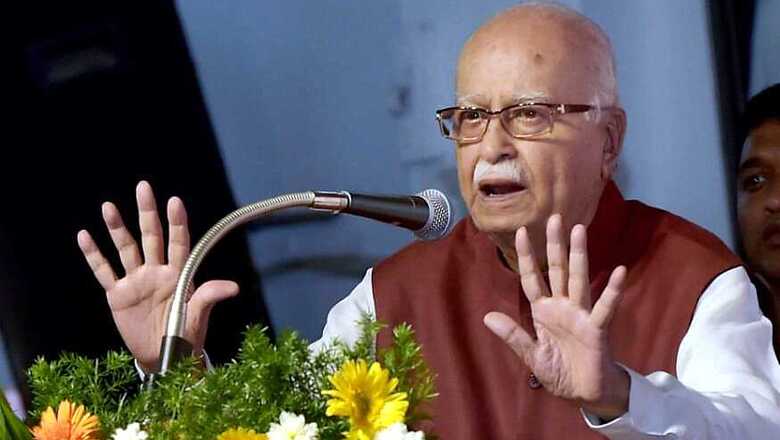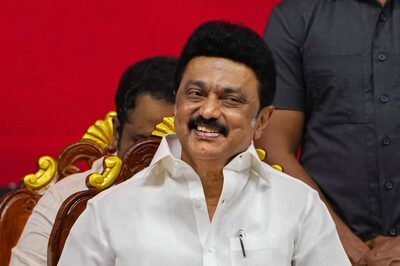
views
New Delhi: BJP veteran LK Advani has described former president Pranab Mukherjee's visit to the RSS headquarters in Nagpur and his "illuminating exposition of the noble idea and ideals of Indian nationalism" as a "significant event in our country's contemporary history".
Advani lauded RSS chief Mohan Bhagwat for inviting Mukherjee and praised the former president for accepting it, saying there was significant concord and resonance in the views expressed by both of them.
As a lifelong 'swayamsevak' of the RSS, the BJP veteran said he believed that Mukherjee and Bhagwat have truly set a praiseworthy example of dialogue transcending ideological affiliations and differences. "Both of them highlighted the essential unity of India, which accepts and respects all diversities, including the pluralism of faiths," he said in a statement.
Advani, who has served as the BJP president for the longest period, expressed his happiness over the RSS under Bhagwat expanding and intensifying its efforts to reach out to various sections of the nation in the spirit of dialogue.
"Such conversations, conducted in the spirit of openness and mutual respect, will surely help in creating a much-needed atmosphere of tolerance, harmony and cooperation to build an India of our common dreams," he said.
Praising Mukherjee, Advani said he showed grace and goodwill in accepting the RSS invite as he recalled his long association with him.
"His own reflective nature, combined with his long and varied experience in public life, have made him a statesman who strongly believes in the necessity of dialogue and cooperation among people of various ideological and political backgrounds," he said of Mukherjee.
The former president's decision to accept the RSS invite to address its members had drawn a lot of flak from several Congress leaders and other rivals of the BJP, which draws its ideology from the RSS.
However, Mukherjee's speech drew praise from Congress leaders as well as from those associated with the RSS. He warned that hatred and intolerance diluted national identity and asserted that nationalism was not bound by race or religion while calling for dialogue to reconcile differences.
(With PTI inputs)




















Comments
0 comment